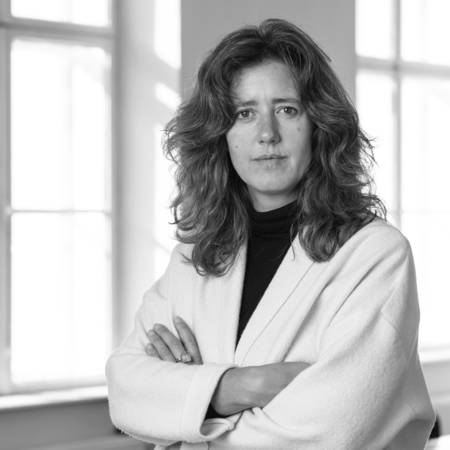Architectural Theory and Philosophy of Technics
Thinking is a banquet whereby we overexert ourselves in “consuming” nothing – if possible – of everything on the lavishly spread table. – Like the 2000 years of treatise tradition, the Section of Architecture Theory and Philosophy of Technology sees the contemporary topicality of architectural ideas and skills as a richly set table. Here we can find out that thinking can be learned and how it can be learned, and train ourselves to articulate positions with relation to the “hot” topics of the present: “Anthropocene”, humanism/post-humanism, climate and sustainability, responsibility and globalisation, in short: understanding the role of architecture in relation to power, politics, economics, technology, values, art, and knowledge.
The potent discourse positions (from Vitruvius to Koolhaas) are explored as a comparative discipline, i.e. with regard to their respective technical, political, economic and religious context. Also to be dealt with is the respective state-of-the-art knowledge in mathematics, philosophy and science, whose profiles are set against each other. The training and study course in the Section treats knowledge as an asset in a dual sense: as a general “treasure” that is circulated abroad, but which has to be accessed and evaluated (both singly and collectively). The value and the ways of dealing with knowledge are a continual imperative for each generation anew. Cultivating them forms the basis of society.
The scientific qualification of the students will impart to them a way of handling architectural knowledge that is linked to the humanist tradition and yet always launches out from the great challenges of the present. Such a treatment takes shape through specialist knowledge itself in the narrow sense, but also through the natural and cultural sciences in the larger societal context. Especially important today in the transition from the so-called industrial society to an information- or knowledge-based society is to develop an awareness of and acquaintance with the forms of production, expression and communication of the media, and also their causal relations. In order to discuss existent and new knowledge and a sustainable treatment of it, an explicit tackling of the theme of technology and its prerequisites is indispensable. In doing so, we mustn’t simply project the conventional logics of progress into the time dimension, but dissolve them diachronically and scrutinise them in their spectral dimension.
Bearing this mind, key themes we would see as important in a the Centre of architecture theory and the philosophy of technology are for instance:
- Time and Space
- Material and Technology
- Religion and Ethics
- Crafts and the Arts
- Science and Method
- Rules and Laws
- Nature and Humanism
- Authorship and Responsibility
- Individuality and Identity
The core of our understanding of study and research centres on exploring these themes in an architecturally critical way, in other words in their constantly changing and developing conditions of the possibility and also of the formulation of necessity; furthermore, learning in open interaction to read, write, understand and rate them in their respective roles and characterisations.
Research Unit Head & Professorship

E259-04 Architecture Theory and Philosophy of Technics
